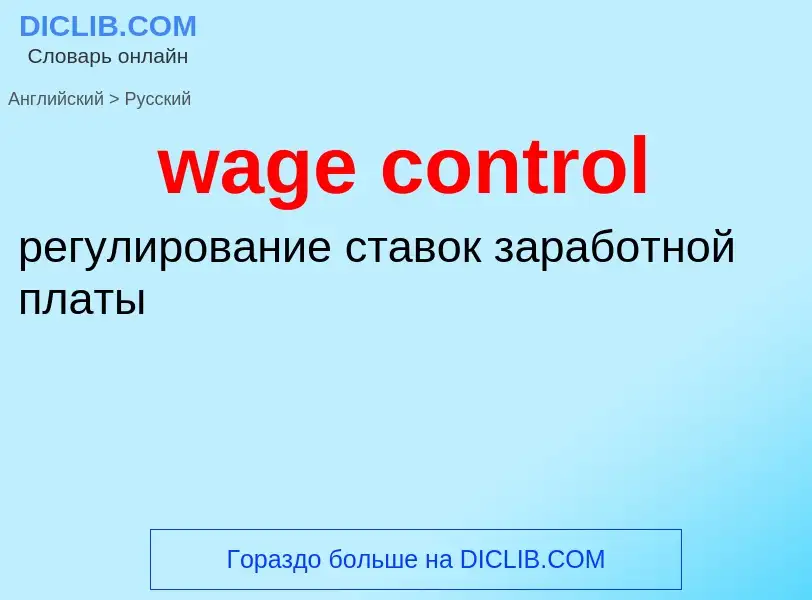Μετάφραση και ανάλυση λέξεων από την τεχνητή νοημοσύνη ChatGPT
Σε αυτήν τη σελίδα μπορείτε να λάβετε μια λεπτομερή ανάλυση μιας λέξης ή μιας φράσης, η οποία δημιουργήθηκε χρησιμοποιώντας το ChatGPT, την καλύτερη τεχνολογία τεχνητής νοημοσύνης μέχρι σήμερα:
- πώς χρησιμοποιείται η λέξη
- συχνότητα χρήσης
- χρησιμοποιείται πιο συχνά στον προφορικό ή γραπτό λόγο
- επιλογές μετάφρασης λέξεων
- παραδείγματα χρήσης (πολλές φράσεις με μετάφραση)
- ετυμολογία
wage control - translation to ρωσικά
Ορισμός
Βικιπαίδεια
A minimum wage is the lowest remuneration that employers can legally pay their employees—the price floor below which employees may not sell their labor. Most countries had introduced minimum wage legislation by the end of the 20th century. Because minimum wages increase the cost of labor, companies often try to avoid minimum wage laws by using gig workers, by moving labor to locations with lower or nonexistent minimum wages, or by automating job functions.
The movement for minimum wages was first motivated as a way to stop the exploitation of workers in sweatshops, by employers who were thought to have unfair bargaining power over them. Over time, minimum wages came to be seen as a way to help lower-income families. Modern national laws enforcing compulsory union membership which prescribed minimum wages for their members were first passed in New Zealand in 1894. Although minimum wage laws are now in effect in many jurisdictions, differences of opinion exist about the benefits and drawbacks of a minimum wage.
Supply and demand models suggest that there may be employment losses from minimum wages; however, minimum wages can increase the efficiency of the labor market in monopsony scenarios, where individual employers have a degree of wage-setting power over the market as a whole. Supporters of the minimum wage say it increases the standard of living of workers, reduces poverty, reduces inequality, and boosts morale. In contrast, opponents of the minimum wage say it increases poverty and unemployment because some low-wage workers "will be unable to find work ... [and] will be pushed into the ranks of the unemployed".


.jpg?width=200)


![lack bargaining power]]. lack bargaining power]].](https://commons.wikimedia.org/wiki/Special:FilePath/Monopsony3.png?width=200)
